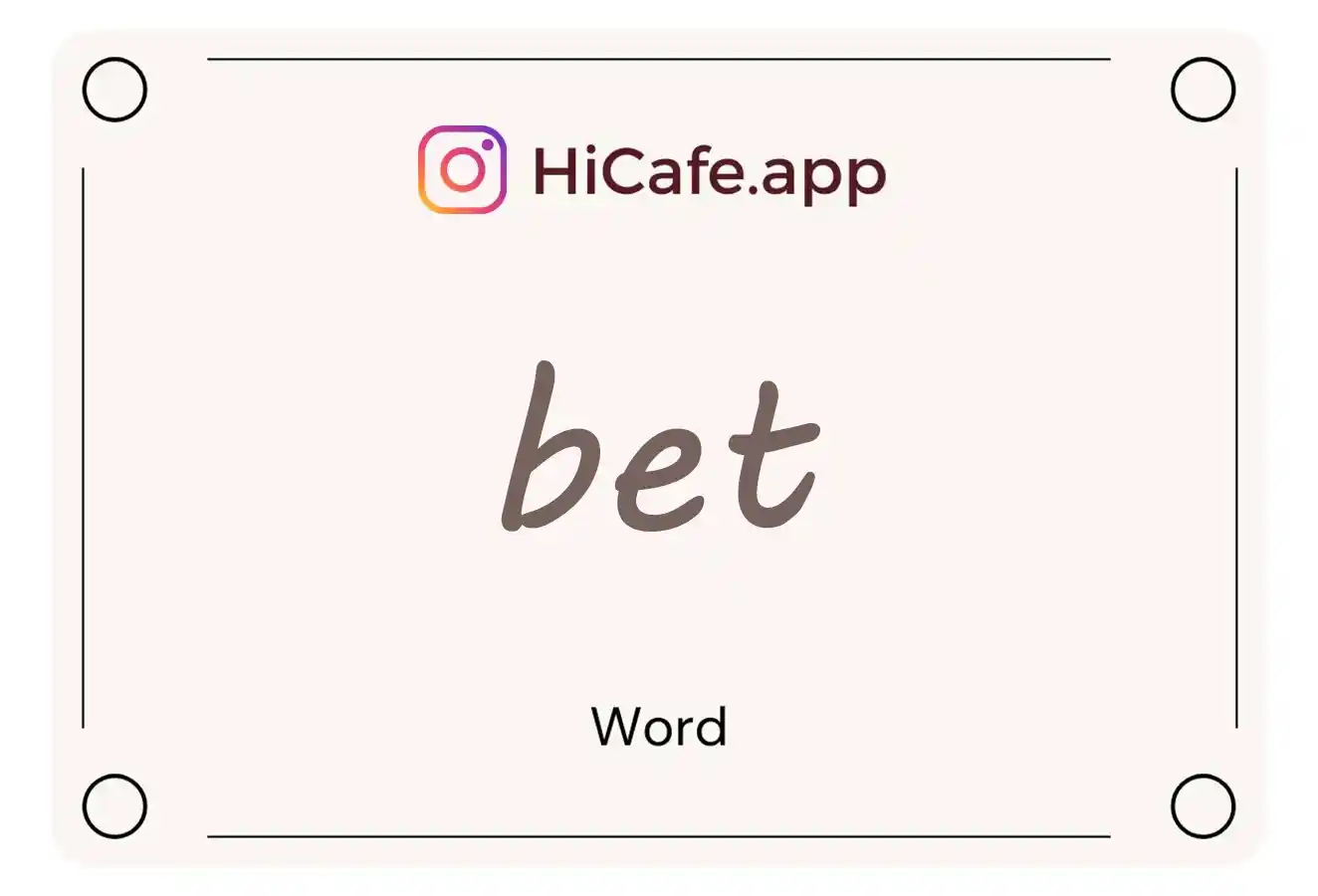Word of the Day: Bet
The word “bet” is used to express some opinion about the future. It’s often associated with gambling or risking something of value.
In these sentences, “bet” is a verb:
| simple | past | past participle |
|---|---|---|
|
bet
|
bet
|
bet
|
- Tony bet $20 on a horse at the racetrack.
- Sandra likes to bet on the outcome of football games.
- How much would you like to bet?
- I’ll bet you ten dollars your team doesn’t win.
- Vince bet all of his money in a poker game and lost.
When used as a verb, “bet” also means that a person has a strong belief that something is true.
- I’ll bet the price of a gallon of gas will go up this summer.
- What do you want to bet it rains tomorrow during the game?
- They’re betting on a better future in sunny California.
In the next set of sentences and questions, the word “bet” is a noun:
- Tony placed a twenty-dollar bet on a horse.
- They made a good bet on the house they purchased.
- What kind of a bet do you want to make?
- Betting isn’t allowed in here. (The word “betting” is a gerund in this sentence.)
- That was a terrible bet.
Note: The word “bet” can be used when saying “You’re welcome.” When someone says “thank-you,” sometimes Americans reply with, “You bet.” The contracted form of this is “You betcha.” (betcha = bet you)
- A: Thanks for helping me.
- B: You bet.
Essential English Dictionary
Visit the Popular English Words Beginning with B page to see the list of all words starting with letter B. For seeing the HiCafe dictionary, visit the Popular English Words with Meaning page.



